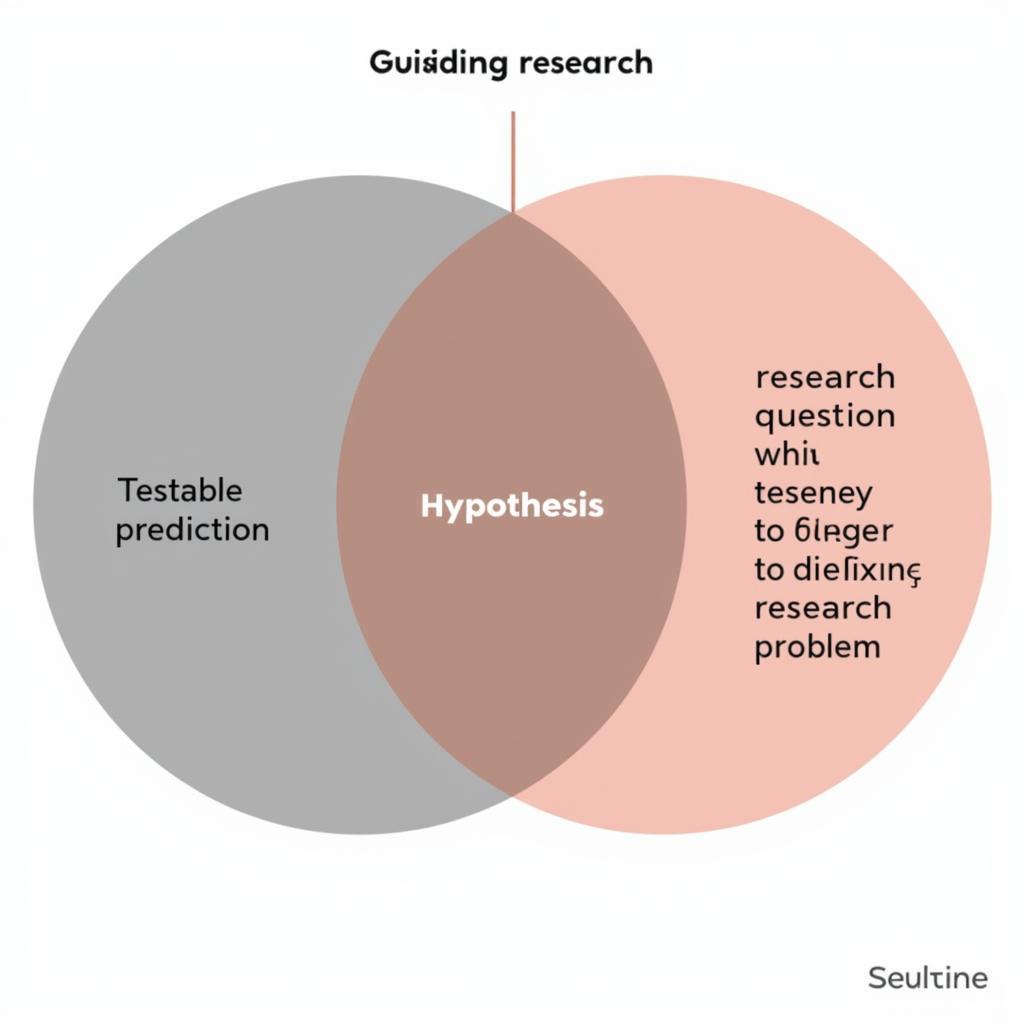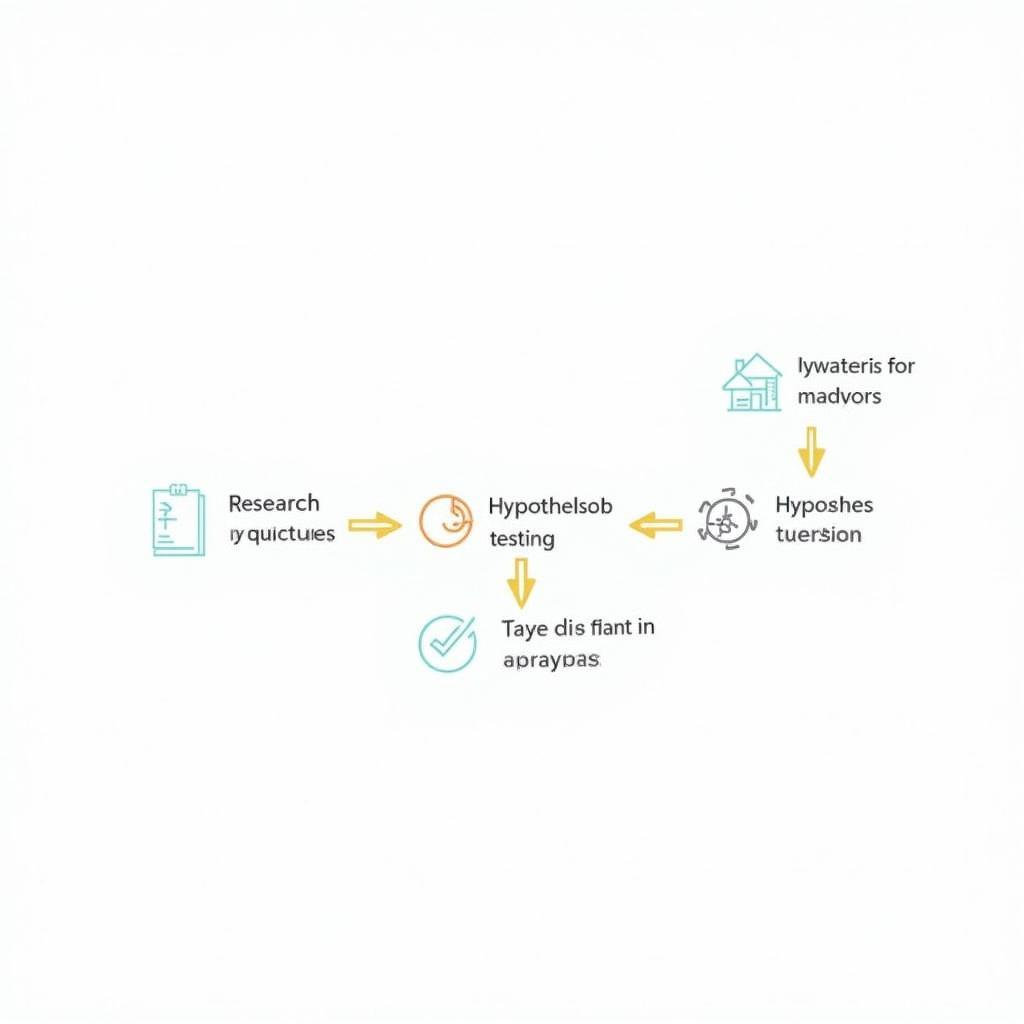In the realm of research, both hypotheses and research questions play pivotal roles, guiding the investigative process. While they are interconnected, understanding the distinction between the two is crucial for conducting effective and meaningful research. This article aims to clarify the difference between a hypothesis and a research question, exploring their unique characteristics and significance in shaping research endeavors.
Defining the Research Question
A research question, as the name suggests, is a clear, focused, and concise question that articulates the central aim of a research study. It frames the problem or issue that the research intends to address, guiding the entire research process. A well-formulated research question:
- Identifies the key variables or concepts under investigation.
- Specifies the target population or context of the study.
- Suggests the type of relationship or pattern that might exist between variables.
For instance, a researcher interested in the effects of sleep deprivation on cognitive performance might pose the research question: “How does sleep deprivation affect attention span and memory recall in young adults?”
Formulating the Hypothesis
A hypothesis, on the other hand, takes the research question a step further by proposing a tentative answer or explanation to the question. It is a testable prediction about the relationship between two or more variables, derived from existing theory or empirical evidence. A strong hypothesis:
- Is stated in a clear, concise, and testable manner.
- Predicts the direction of the relationship between variables.
- Is grounded in existing research or theoretical frameworks.
Based on the research question above, a possible hypothesis could be: “Sleep deprivation will significantly impair attention span and memory recall in young adults.”
Distinguishing Features: Hypothesis vs. Research Question
 Hypothesis vs. Research Question
Hypothesis vs. Research Question
While both are essential components of the research process, hypotheses and research questions differ in several key ways:
Purpose:
- Research question: Explores a research topic and identifies areas for further investigation.
- Hypothesis: Attempts to provide a tentative explanation or prediction based on existing knowledge.
Scope:
- Research question: Can be broad or narrow, depending on the research stage and goals.
- Hypothesis: Typically more specific and focused, addressing a particular aspect of the research question.
Testability:
- Research question: Not directly testable but guides the development of testable hypotheses.
- Hypothesis: Formulated to be empirically tested and either supported or refuted by data.
Interplay of Hypothesis and Research Question
 Research Process Flowchart
Research Process Flowchart
The relationship between hypothesis and research question is best understood as a cyclical process. The research question sets the stage for the entire study, while the hypothesis provides a specific direction for investigation. As data is collected and analyzed, the findings may either support or refute the initial hypothesis. Even if a hypothesis is not supported, it contributes valuable insights that can refine the research question or generate new hypotheses for future exploration.
Examples in Paranormal Research
In the intriguing field of paranormal research, where mysteries and unexplained phenomena abound, the interplay of hypothesis and research question is crucial.
Let’s say our research interest lies in the alleged connection between electromagnetic fields (EMFs) and paranormal experiences. Our initial research question might be: “Do fluctuations in electromagnetic fields correlate with reported paranormal activity?”
From this broad question, we can formulate a testable hypothesis: “Locations with significantly higher EMF readings will show a higher incidence of reported paranormal phenomena compared to locations with normal EMF levels.” This hypothesis then guides our investigation as we collect EMF readings and anecdotal accounts of paranormal activity from different locations.
Conclusion
Understanding the difference between a hypothesis and research question is paramount for conducting rigorous and meaningful research, particularly in a field as complex and enigmatic as paranormal research. While the research question sets the overall direction of the study, the hypothesis provides a testable prediction that guides data collection and analysis.
By carefully crafting both elements, researchers can effectively navigate the complexities of their investigations, unraveling the mysteries of the unknown one well-formulated question and testable prediction at a time.
For further exploration on related topics, consider exploring the following resources on our website:
- Difference between a research question and a hypothesis
- Understanding nursing research 8th edition
- What is the conceptual framework in research
- Applied v basic research
- Data analysis methods in quantitative research
Contact us today for personalized guidance on your research journey. Our team of experienced Paranormal Researchers is available 24/7 to assist you. Call us at 0904826292, email us at research@gmail.com, or visit our office at No. 31, Alley 142/7, P. Phú Viên, Bồ Đề, Long Biên, Hà Nội, Việt Nam. Let us help you delve deeper into the mysteries of the paranormal world!